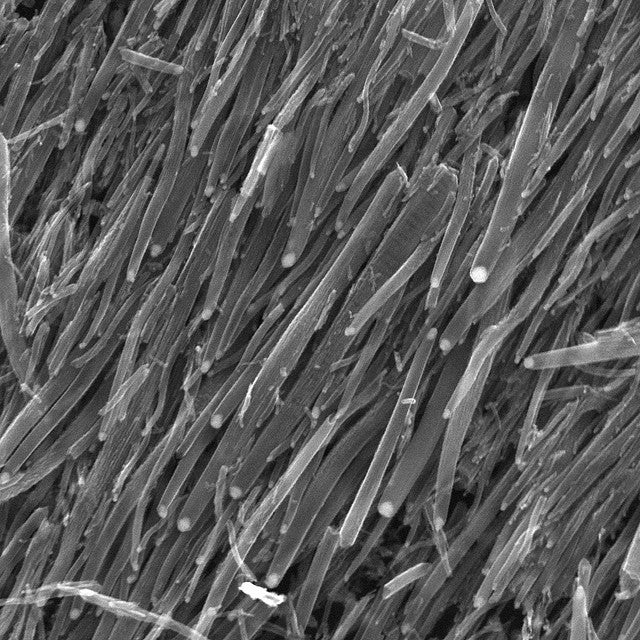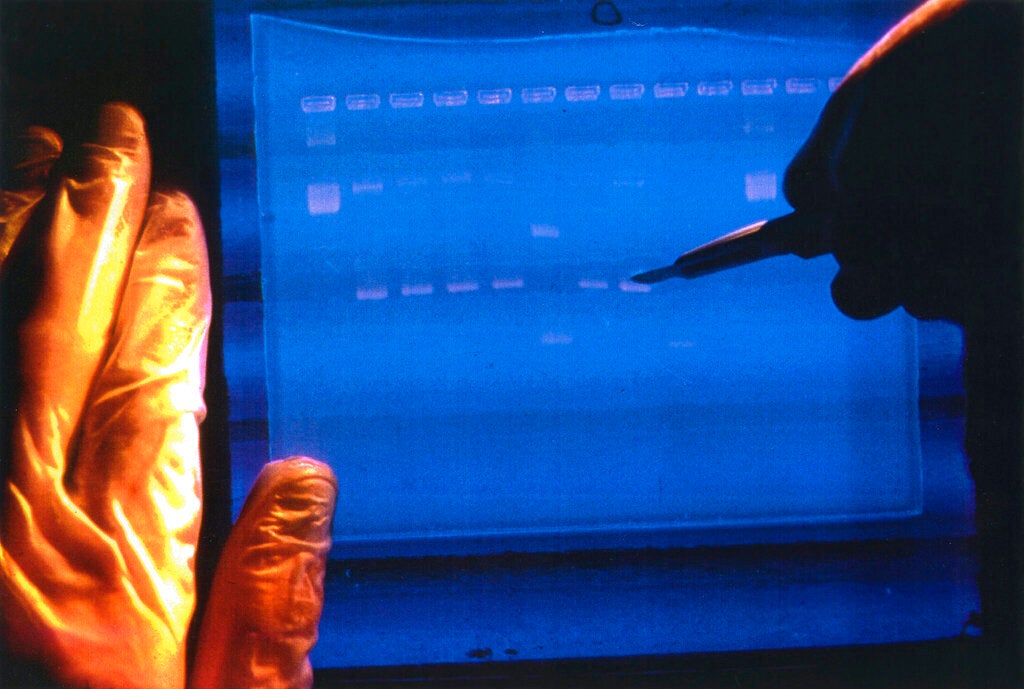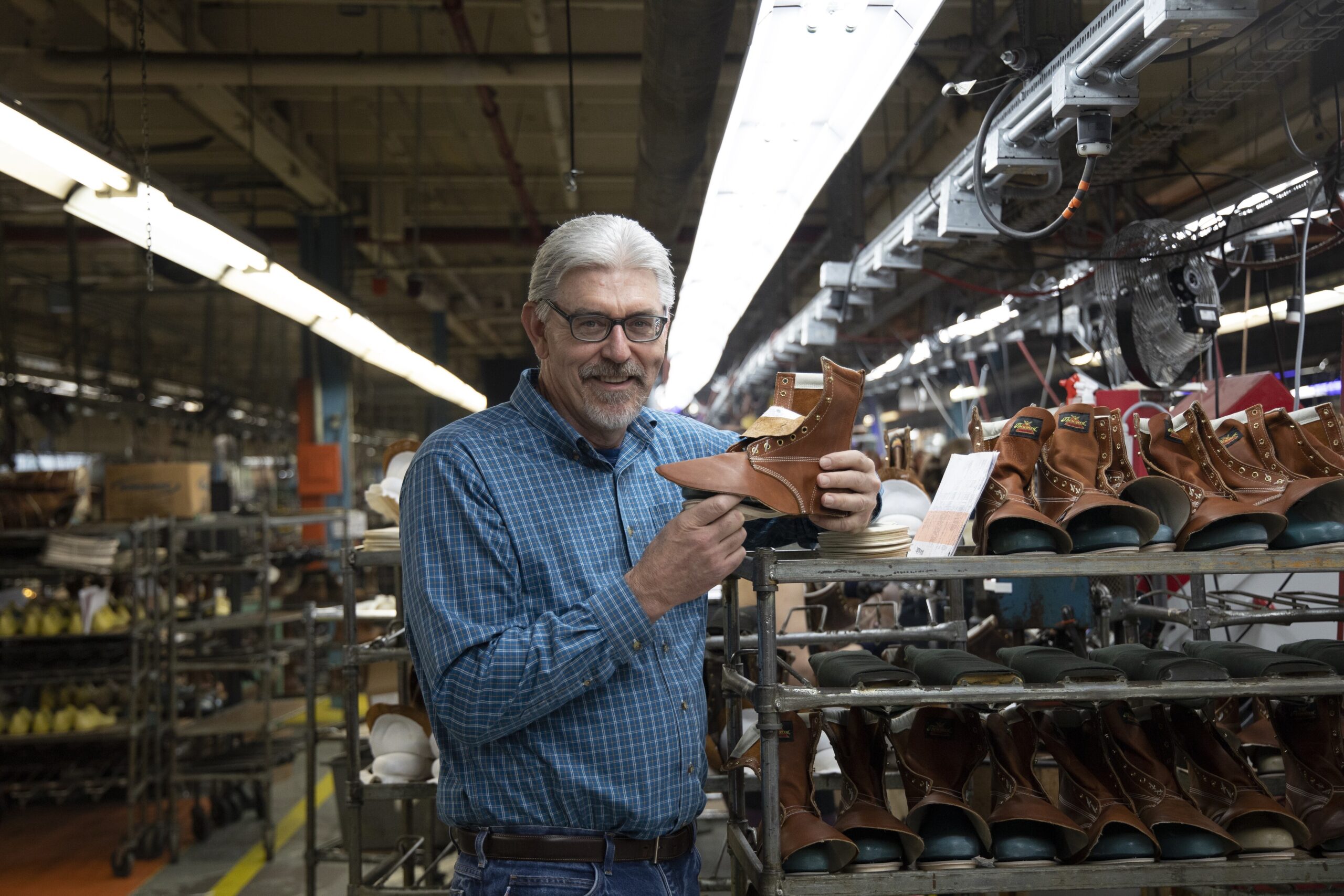
University of Wisconsin-Madison Professor Michael Arnold. Photo: David Nevala.
Scientists at University of Wisconsin-Madison are reporting a breakthrough in using very small technology to extend the battery life of some electronic devices.
Materials engineers have been working for years with carbon nanotubes — cylindrical-shaped tiny sheets of carbon that are a billionth of a meter in diameter and, obviously, impossible to see with the naked eye. The nanotubes are very strong and flexible, and are great conductors of electricity. However, researchers have had trouble with differences and tangles in them and with metallic impurities shorting out electronic circuits.
Stay informed on the latest news
Sign up for WPR’s email newsletter.
Recently, however, a UW-Madison team led by Professor Michael Arnold has succeeded in attaching long, stringy molecules called polymers to the conducting nanotubes to eliminate the shorting problem, and making other changes to get the nanotubes to line up. Arnold says the improved tiny tubes could be useful in replacing the silicon in computer chips, or lead to longer-lasting batteries in cellphones.
“In your cellphone, there is a chip that will amplify a high-frequency signal and then transmit that to your cell tower. And it’s possible to make more efficient versions of these chips by using carbon nanotubes versus the current state-of-the-art materials. So basically you have less power consumption by using better electronic materials,” said Arnold.
Arnold also said it may be possible to create better transistors and circuits that are more flexible and can conform to a curved surface — perhaps to even be put in clothing.
He said the biggest hurdles remain being better able to reproduce the technology and scale things up.
“Those relate to the fact that nanotubes are just tricky materials to work with and they’re completely different than any other material that’s been discovered,” he said. “So we’re still going through that learning curve. We’re just in a better place than we have been previously.”
The researchers have patented their work through the Wisconsin Alumni Research Foundation and are working with companies to accelerate the technology transfer to businesses. The National Science Foundation, U.S. Army and other agencies funded the research.
The latest paper by Arnold and his team is published in the journal “ACS Nano.”
Some medical researchers have previously raised questions about the safety of long-term exposure to carbon nanotubes and call for strict regulation of their use.
Wisconsin Public Radio, © Copyright 2024, Board of Regents of the University of Wisconsin System and Wisconsin Educational Communications Board.






